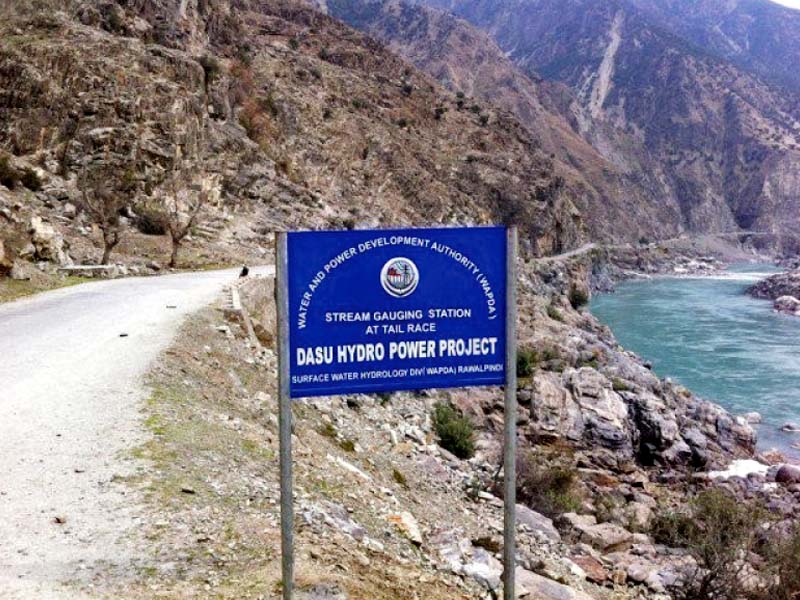
It was the second downward revision in the project’s implementation rating over the past two and a half years, indicating the systemic bureaucratic weaknesses that have started affecting strategic projects. Last time, the World Bank had cut the progress rating to moderately satisfactory in June 2016.
The previous federal government had failed to resolve a host of land-related issues and could not ensure safety measures, leading to casualties. “The implementation progress of the DHP-I has remained slower than expected,” said the latest implementation status report of the World Bank-funded project, released in the outgoing week.
The report noted that land acquisition has only reached 742 acres, out of the 1,987 acres required for construction areas. The accrued delay during the last two years in acquiring land has now reached a stage where it directly affects the pace of the main works construction, and implementation progress has, therefore, been set to be moderately unsatisfactory, stated the report.
PM intervenes to save $4.3b Dasu dam project
Pakistan had envisaged completing the project by December 2021 to add 2,160MW of electricity to the national grid under the first phase. The previous government preferred the 4,320MW Dasu hydropower project over Diamer-Bhasha dam and then prime minister Nawaz Sharif was initially keen to inaugurate its first phase before the end of his five-year term in 2018.
The World Bank financing is also important for the timely completion of the project’s first phase, which has a total cost of $4.3 billion. The bank has already approved $588.4 million for the scheme. It has also given guarantees of $460 million for raising about $2.5 billion in commercial loans from domestic and foreign lenders. Owing to the slow physical progress, the World Bank released only $179 million or 30.4% of its loan component in the past four years, according to a project progress report of the lender.
World Bank warns Pakistan of rise in Dasu project cost
The project comprises six power generating units of 360MW each as well as a 250km, 765-kilovolt double-circuit transmission line from Dasu to Islamabad.
The World Bank loan is primarily being used for project supervision, implementation of social and environmental management plans, and preparatory works such as relocation of Karakoram Highway (KKH), access roads, offices and colonies.
The progress report stated that the preparatory work is only 24% finished compared to expected 100% and main civil works have reached less than 1% of the completion compared to expected 20% by this time. Furthermore, poor safety management has resulted in accidents and fatalities associated with the construction work, according to the report.
However, the Washington-based lender noted that recent increased attention and leadership by senior government officials in the Ministry of Water Resources and the government of Khyber-Pakhtunkhwa (K-P) have led to visibly increased activities to accelerate the project since November 2018. In collaboration with the World Bank, the Ministry of Water Resources, K-P government and the Water and Power Development Authority (Wapda) have identified a set of critical actions that need to be taken urgently to turn around the project.
Key actions are to accelerate land acquisition, improve occupational safety and health management, strengthen the Wapda project management unit and decentralise the decision-making process to project level so implementation can become more efficient.
Key decisions on the way forward to solve the land acquisition issues were taken by the project steering committee in a meeting in Peshawar on November 6, 2018, which was chaired by the minister of water resources. A committee formed by the K-P government in November 2018 has started work to resolve the land acquisition issues and will present its suggestions in the next steering committee meeting. The World Bank will send a mission to Pakistan next month to follow up on the actions to accelerate the project.
Published in The Express Tribune, January 20th, 2019.
Like Business on Facebook, follow @TribuneBiz on Twitter to stay informed and join in the conversation.
1732521023-0/biden-(1)1732521023-0-405x300.webp)
1732520496-0/BeFunky-collage-(86)1732520496-0-165x106.webp)
1732519472-0/lamar-(3)1732519472-0-165x106.webp)
1732519298-0/BeFunky-collage-(85)1732519298-0-165x106.webp)


1732486769-0/image-(8)1732486769-0-270x192.webp)










COMMENTS (2)
Comments are moderated and generally will be posted if they are on-topic and not abusive.
For more information, please see our Comments FAQ